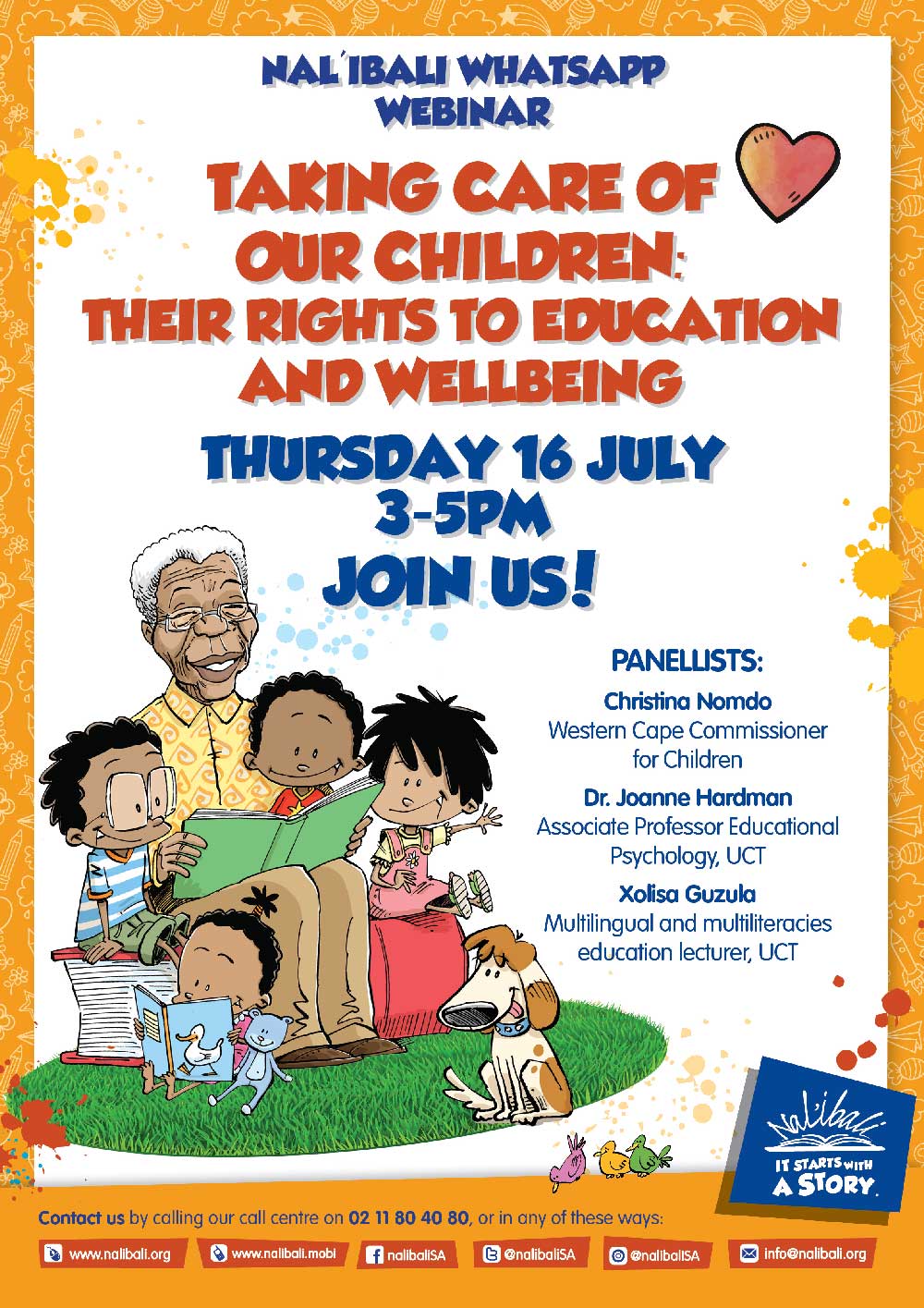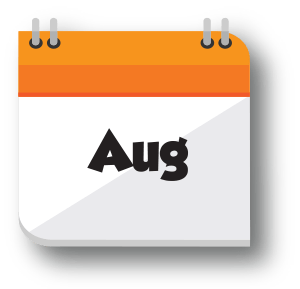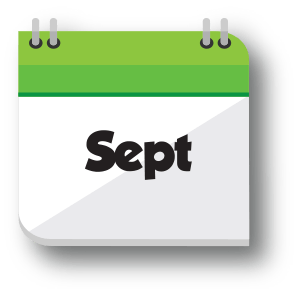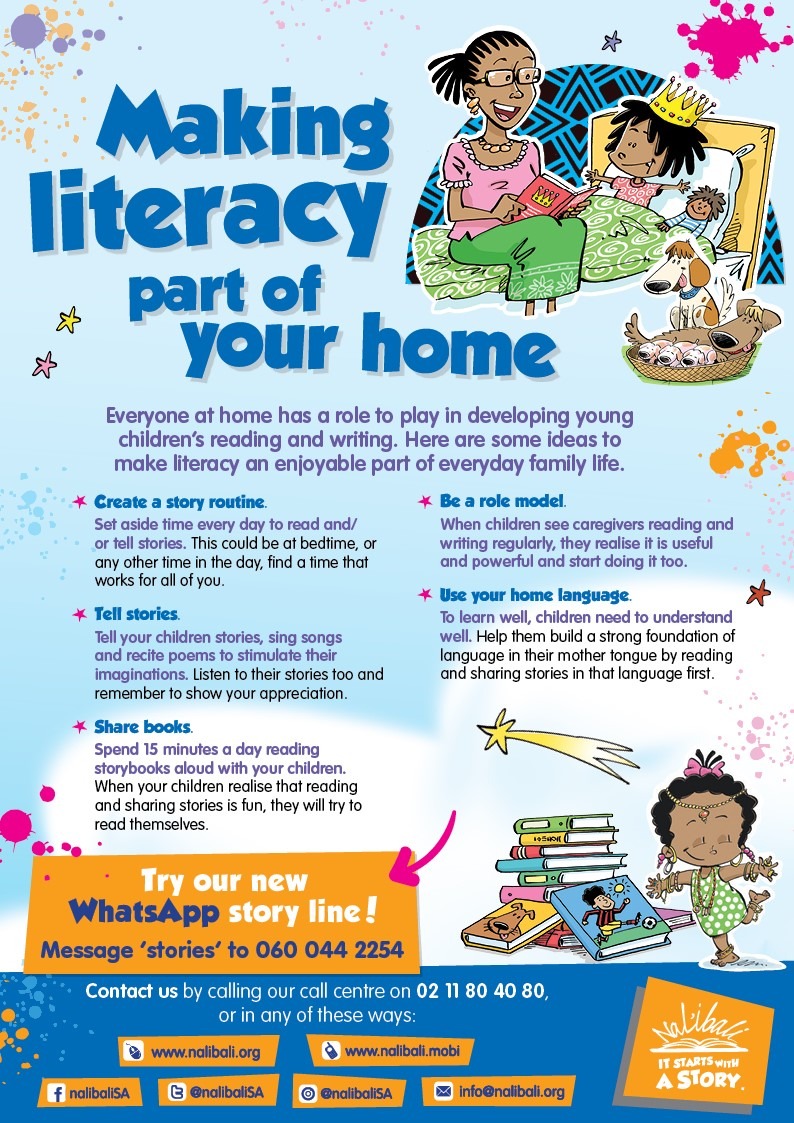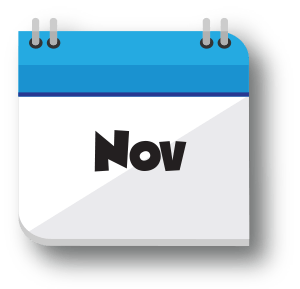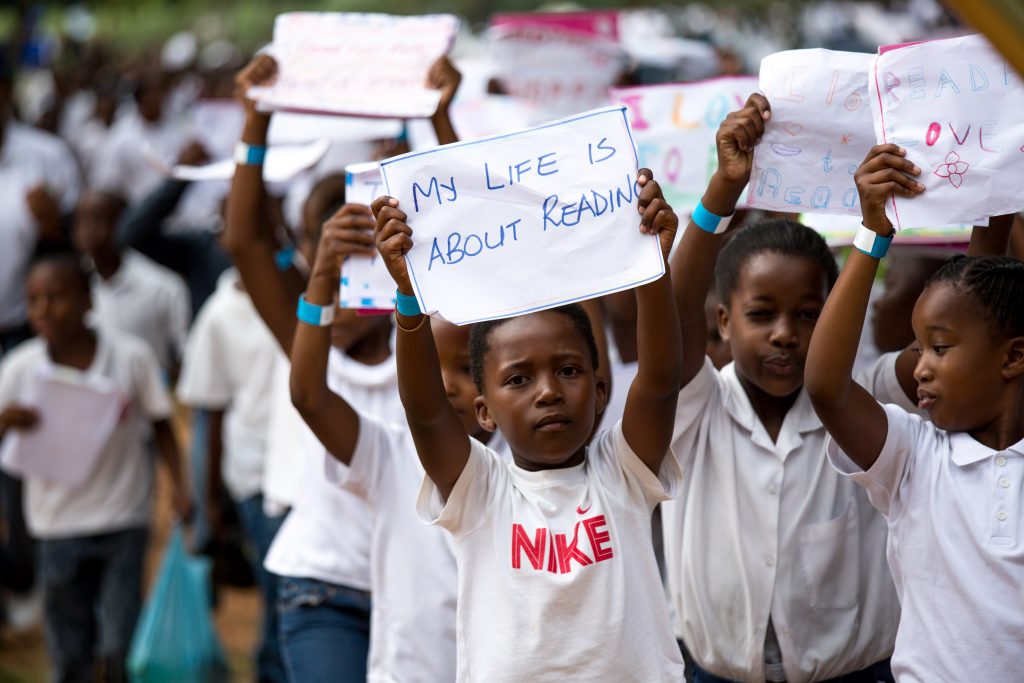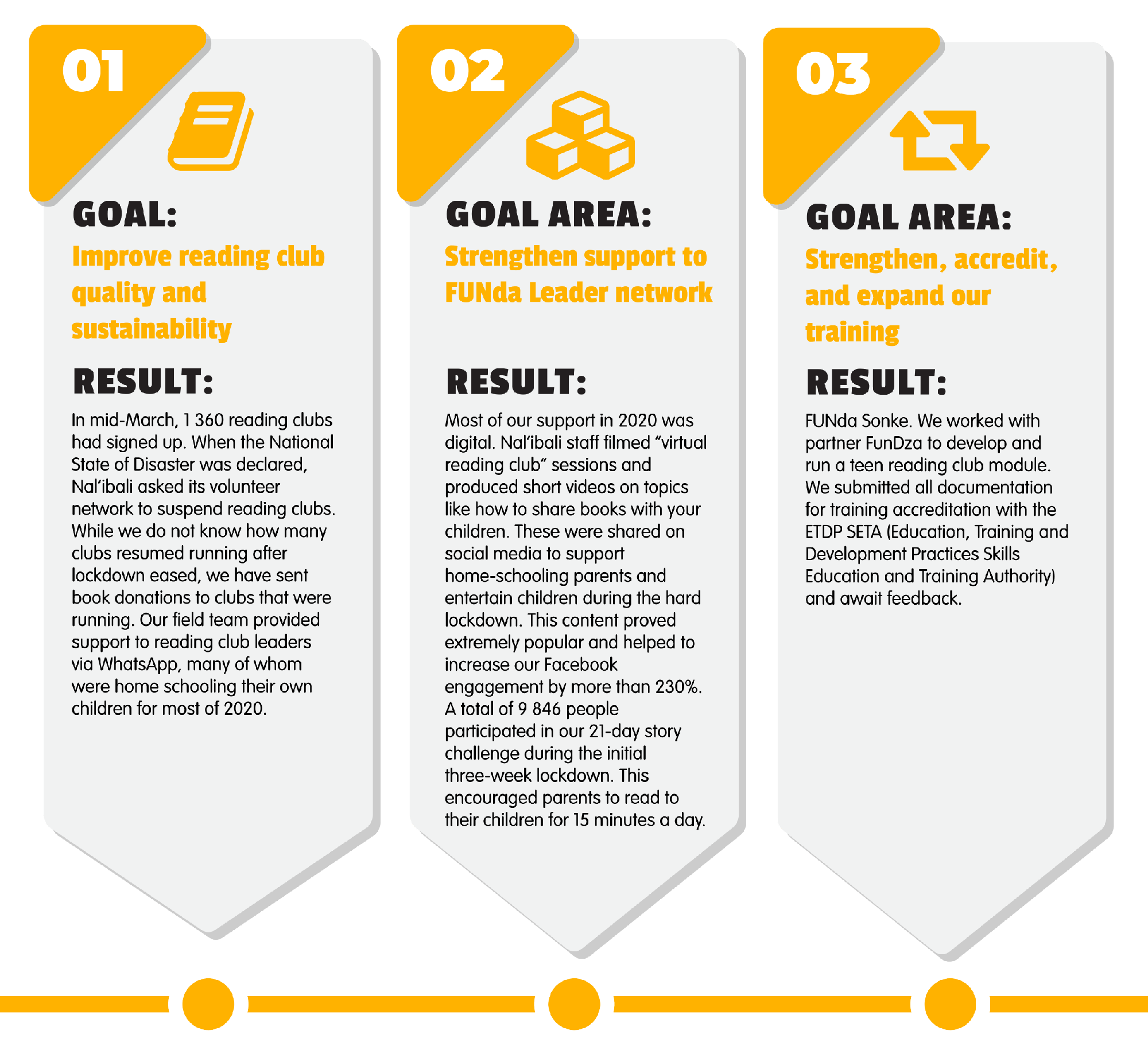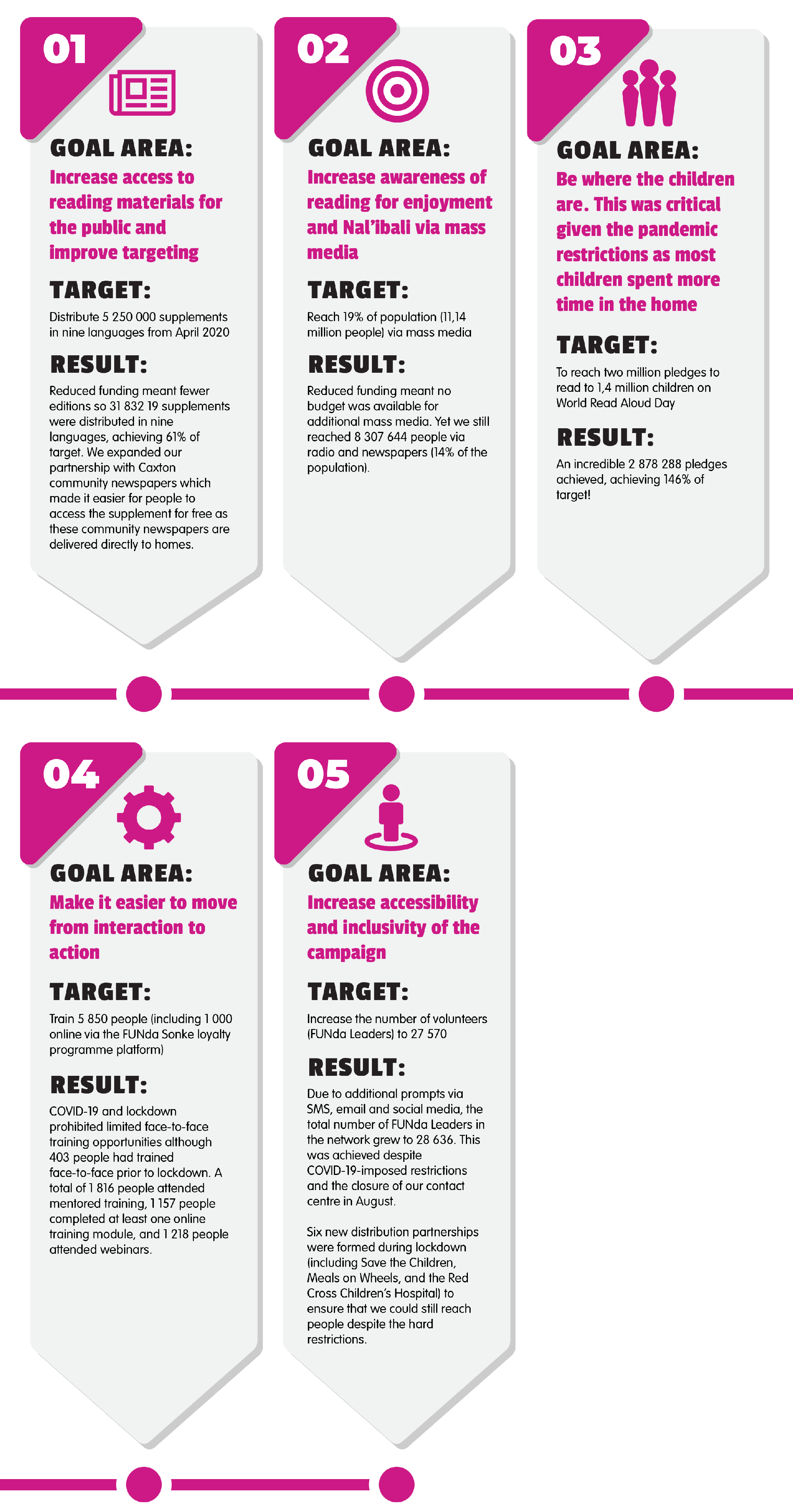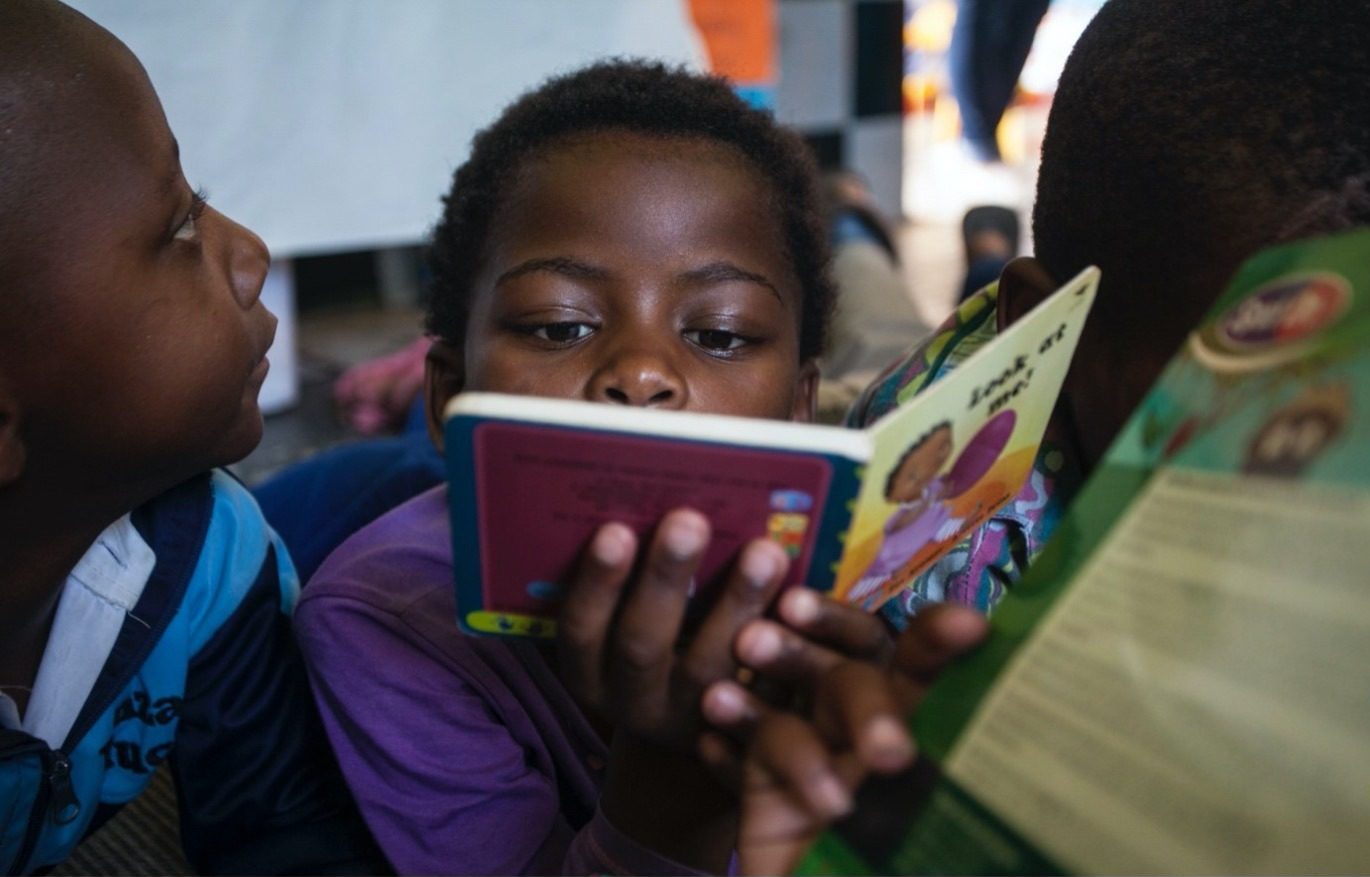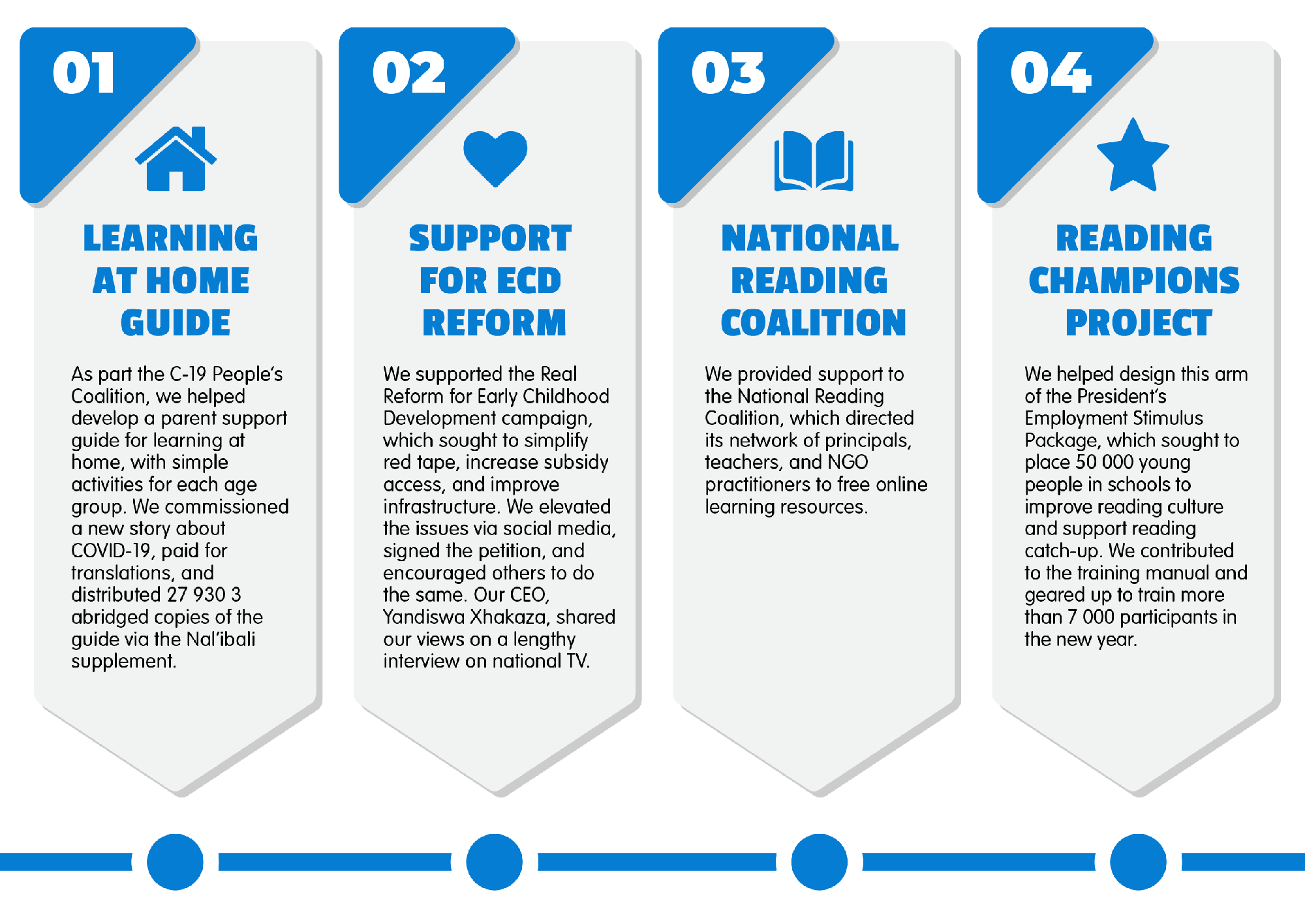Launched in 2012, the national reading-for-enjoyment campaign, Nal’ibali, seeks to establish a culture of reading in South Africa. This strategy involves distributing high-quality multilingual reading materials at scale; training and supporting people to run reading clubs; and using media to make reading accessible and enjoyable.
Reading can be a real game-changer for education in South Africa. Literacy skills are a strong predictor of future academic success in all subjects. Research indicates that children are better equipped and motivated to learn to read and write if they hear engaging stories in languages they understand. It is also important to boost this motivation by developing a habit of regular reading from an early age.
CEO’s address
Nal’ibali had a difficult year in 2020 due to many reasons. The greatest of these was the significant decrease in annual donations that had dropped to 31% of our 2019 annual budget. Working with this budget proved difficult. This, in turn, led to the need for drastic cost-reduction measures that included the following:
Retrenchment of nearly 50% of staff members
- 33% Reduction
The Johannesburg office was closed
- Saved us R789 998 in rent, office infrastructure and equipment
The call centre based in Johannesburg was replaced with an automated system for key functions
- Reading Club registration and
re-registration is now done through an online form with real-time data - Book donation requests are also done through an online request form
Head office was moved to a less expensive office space
- 45% rental reduction
Ending the physical address monthly newspaper supplement drop-offs to partners, reading clubs and schools (All drop-offs are now done through the South African Post Office (SAPO) at no cost)
- Reduced courier costs by R560,480
Introduced story donation instead of commissioning stories (a cost of R5 500 per story before additional editing, translating and illustration costs)
- Saving R330 000 a year to produce 60 stories
Introduced income-generating initiatives such as selling our Read Aloud Collection across CNA stores in South Africa
- Generated just over R2,3 million in revenue during the reporting period of May 2021
With all the cost-cutting measures put in place, we were not able to do as much for our beneficiaries as we could in previous years.
We had to cut the number of stories aired on radio as well as the number of newspaper supplements distributed to communities and partners. For us to service our beneficiaries to the same extent as we had done, we had to raise R63 million to get back to our 2019 budget. This was especially challenging given the economic effects of COVID-19 on business across the globe.
Our strategy has had to change, not only to adapt to the impact of COVID-19 but also to a severely reduced budget. This included a change to how training is conducted in communities and not going directly to schools, ECD centres, community-based organisations and so on. Implementing new models proved to go beyond survival tactics but also demonstrated efficient ways of working during a crisis.
We collaborated with civil society groups that partner with those working directly with children. This enabled us to have greater reach.
We also had to review how we distributed newspaper supplements across the country. This had previously required all beneficiaries to pay for a newspaper for them to access the supplement. We changed the service provider to one that distributed the supplements along with their own local newspapers for free to our target communities. This change resulted in saving a significant amount of money.
These are just a few examples the changes made. This has resulted in a far better position than we were in early 2020 as we have a much smaller, agile, and efficient team. Keeping costs low while having a great impact remains critical.
We remain committed to servicing communities by providing high-quality reading material in all 11 official languages and shifting the culture of reading through community engagements and using mass media as a tool for social change.
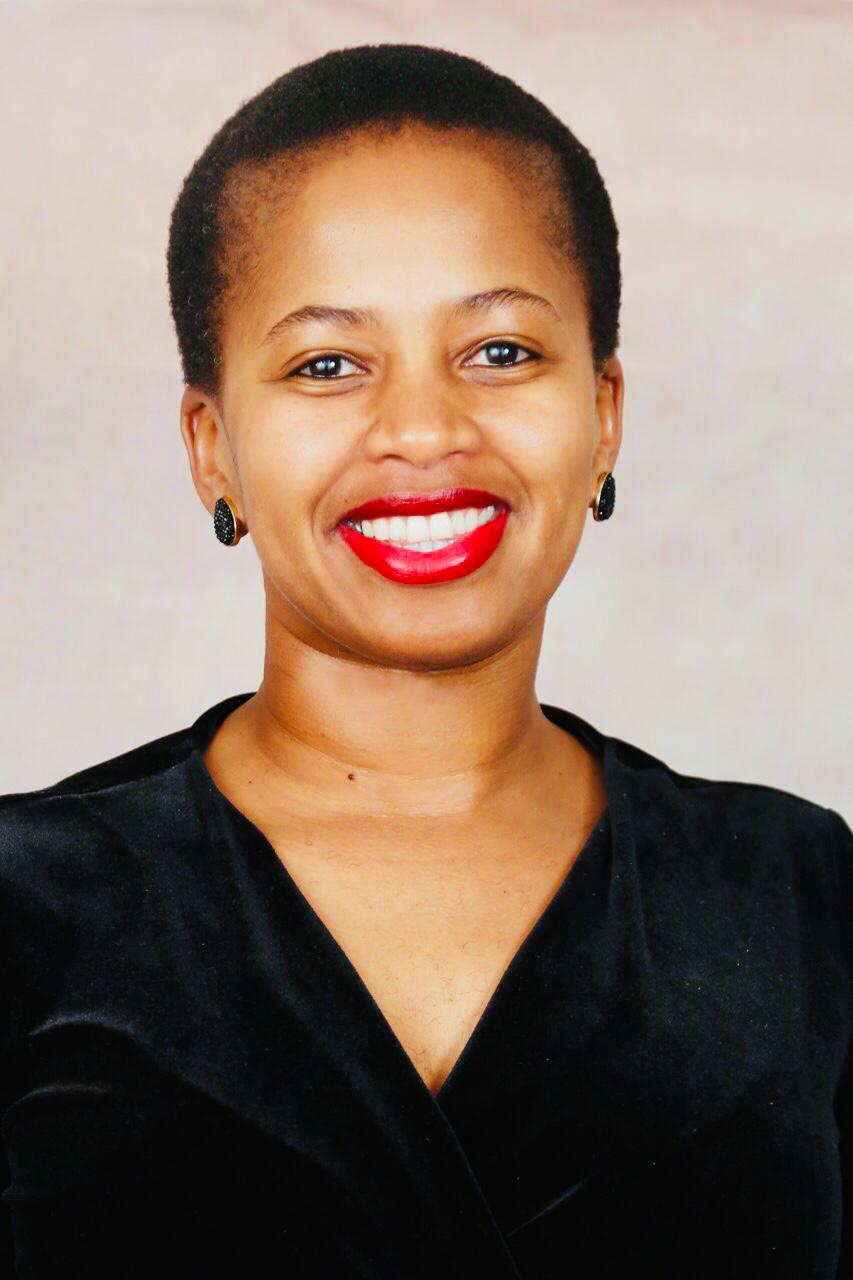
Yandiswa Xhakaza
CEO
Special projects
In addition to its national campaign, Nal’ibali runs more intensive, focused projects in specific geographical areas or to achieve specific goals, in partnership with funders.
In 2020, it launched two new projects:
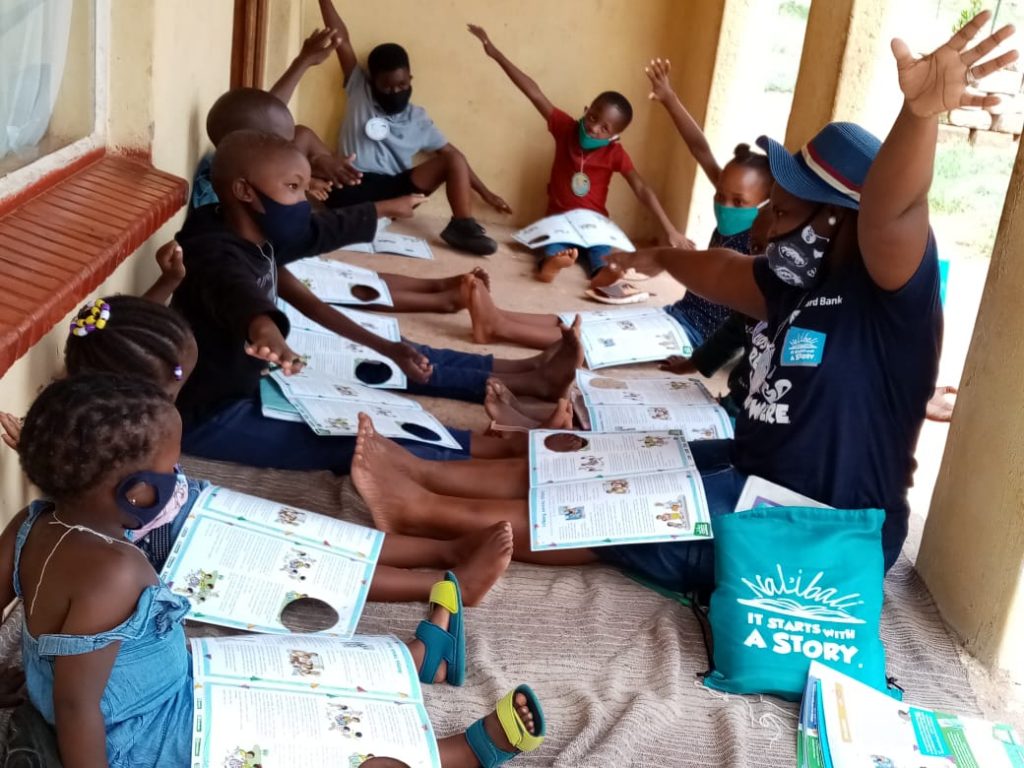
The Standard Bank South Africa (SBSA) project
The Standard Bank South Africa (SBSA) project set out to place young people at 16 schools in Gauteng and Limpopo, to bring SBSA-supported libraries to life, and create a volunteer programme for SBSA employees. The volunteer programme moved online, and the team turned to parent support and reading material distribution during lockdown. Standard Bank also helped fund radio story development.
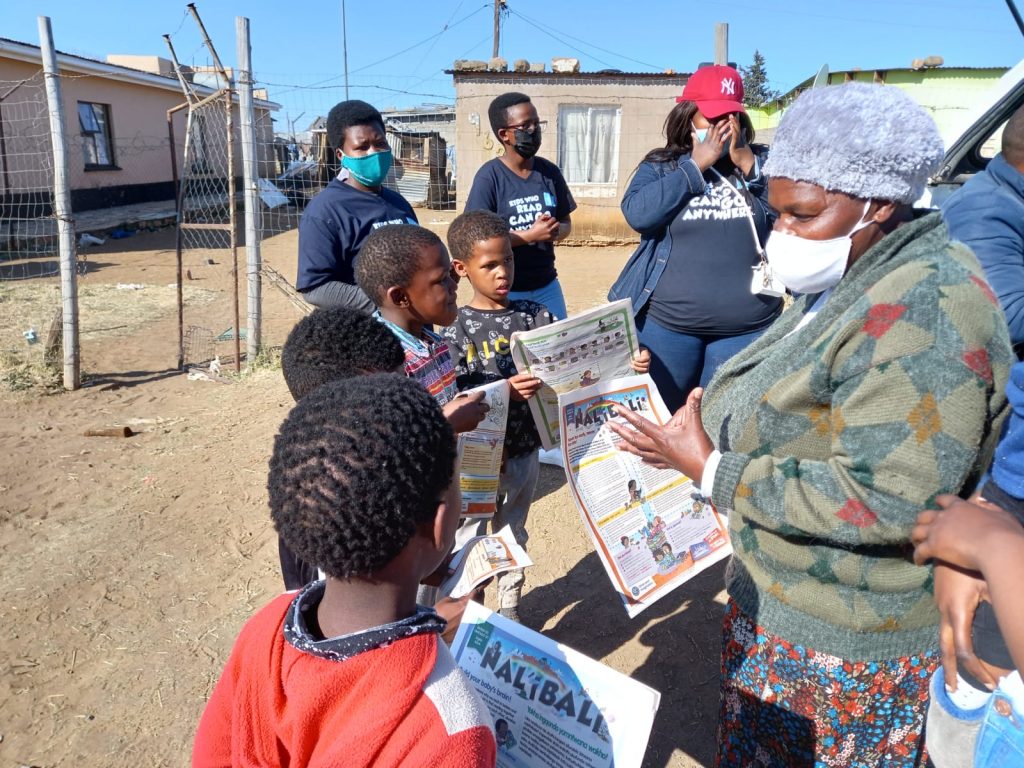
The Yizani Sifunde project
The Yizani Sifunde project, funded by the Liberty Community Trust, is a collaboration between three like-minded organisations: Nal’ibali, Wordworks, and Book Dash. It seeks to support 80 educare centres in the Eastern Cape and provide the surrounding communities with books. As the implementation was delayed due to COVID-19 restrictions, it had to change focus to the project design and planning.
Five multi-year projects also continued running from previous years:
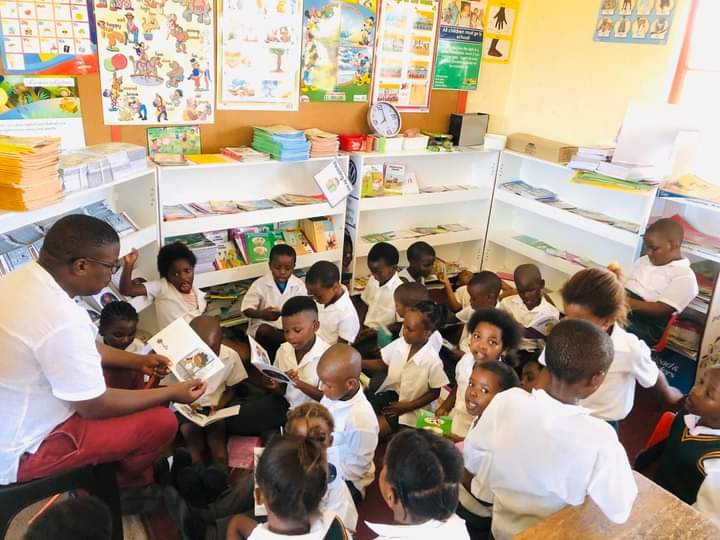
Volkswagen South Africa
In Uitenhage, Eastern Cape, our Volkswagen South Africa partnership entered its fifth year of supporting five project schools and catalysing reading-for-enjoyment activities in the broader community. Volkswagen also helped to fund supplement distribution across the country.
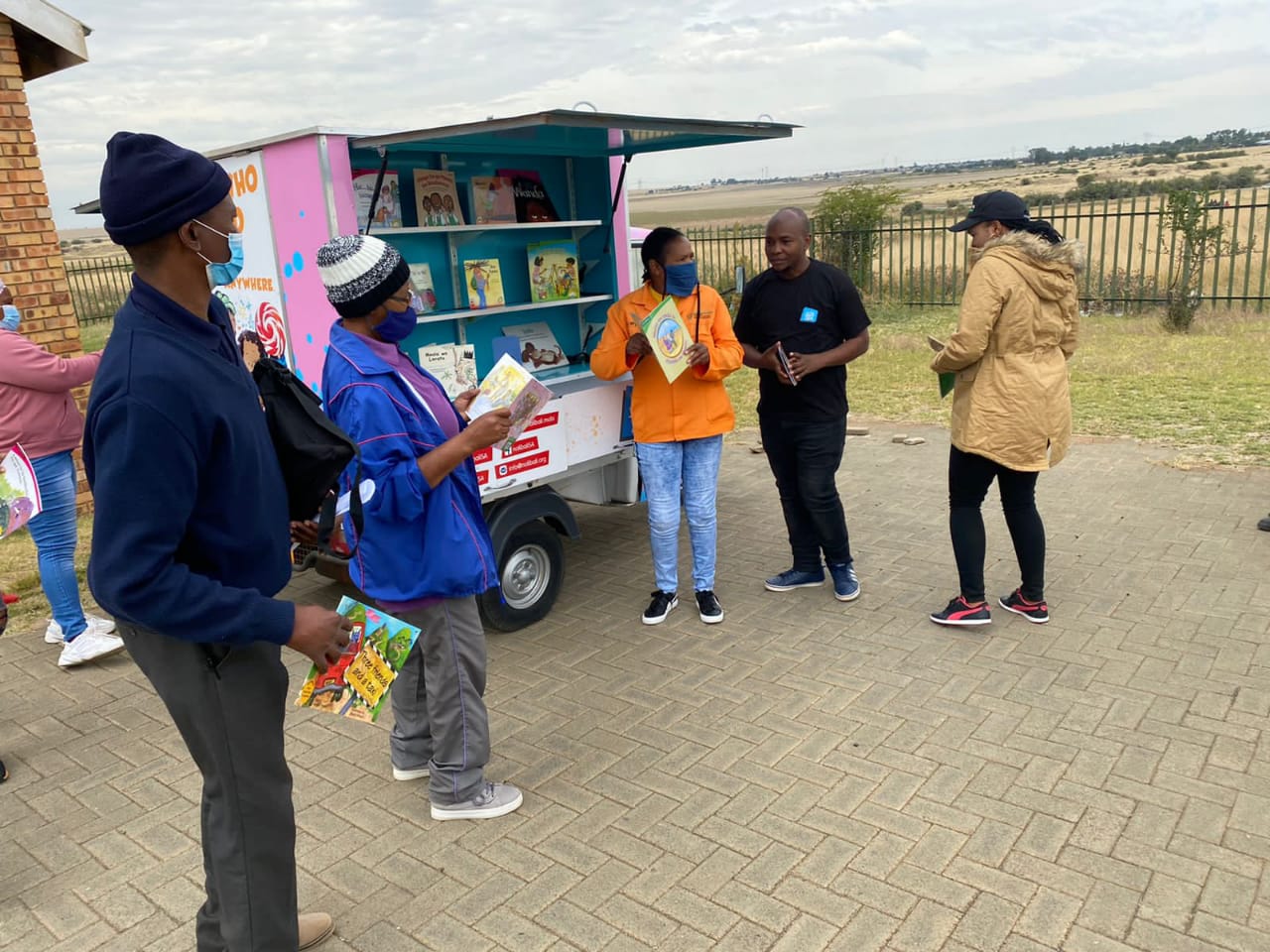
Tuk-tuk libraries
Our tuk-tuk libraries, funded by DGMT, were lending books in four provinces prior to lockdown, namely the Eastern Cape, KwaZulu-Natal, Gauteng, and the Western Cape.
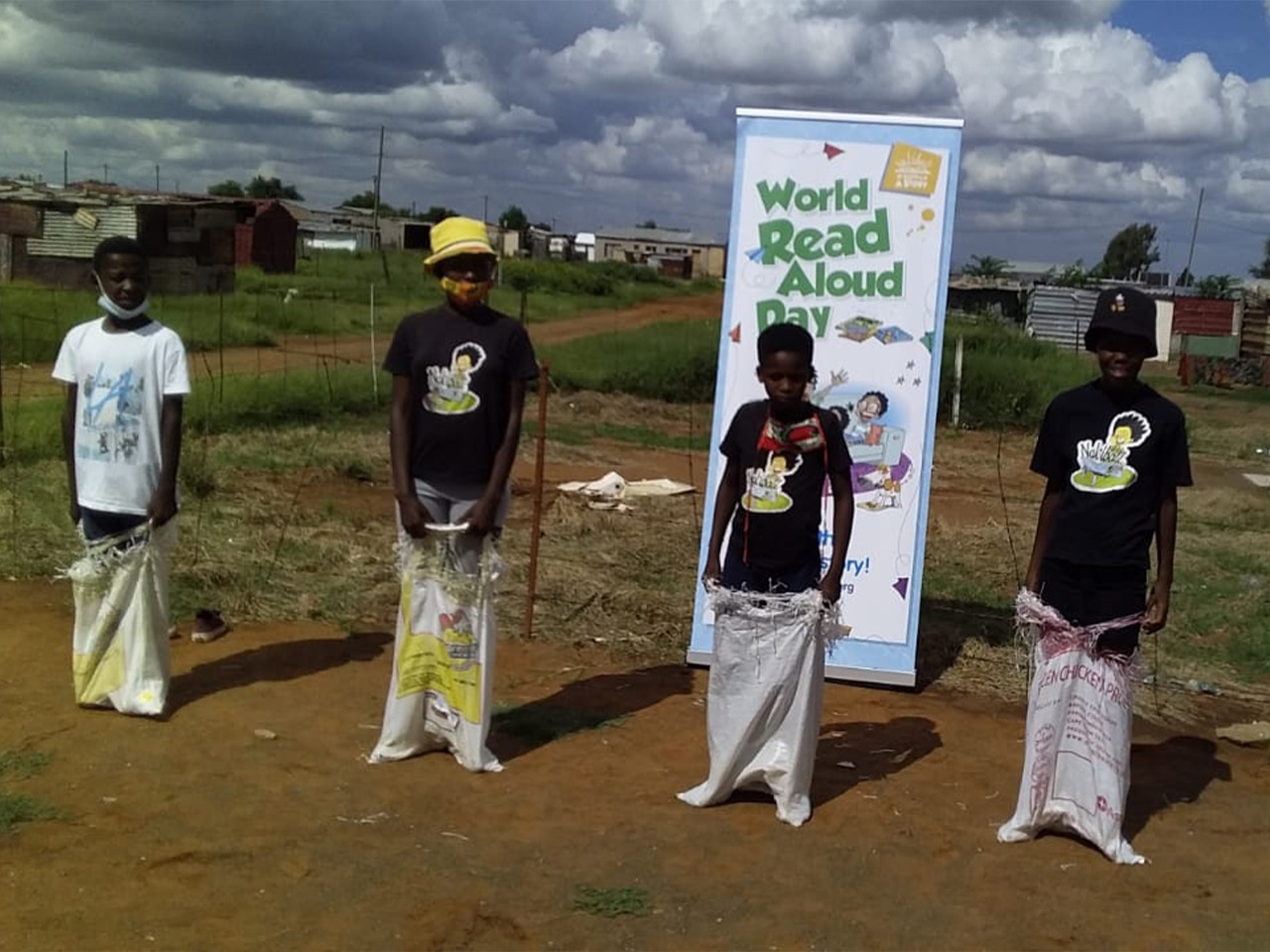
Lesedi Solar Park and Letsatsi Solar Park projects
Our Lesedi Solar Park Trust project in the Northern Cape and our Letsatsi Solar Park Trust project in the Free State entered their third year of supporting schools and preschools and working with local structures to promote reading.
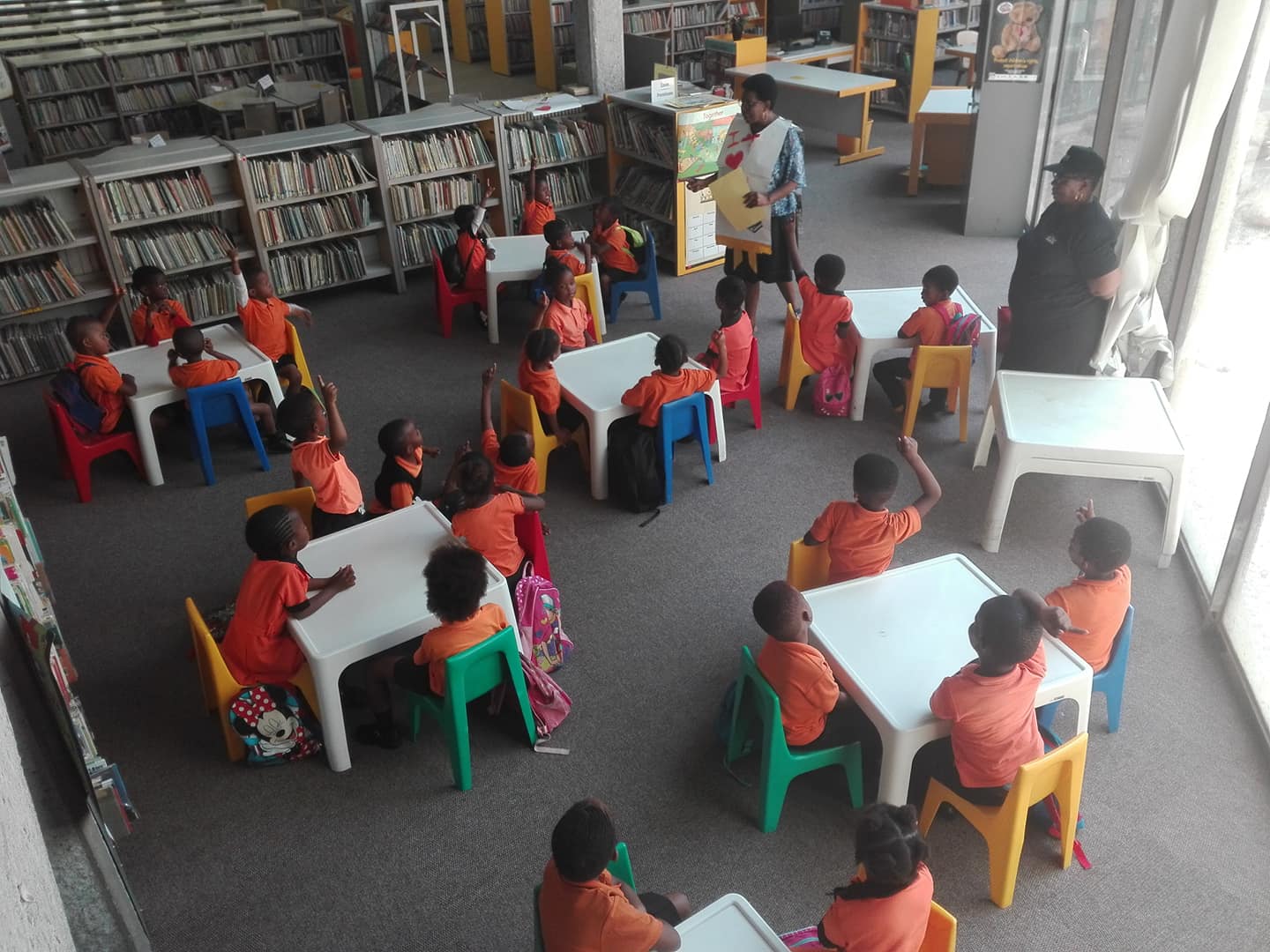
HCI Foundation project
In Welkom, Free State, our HCI Foundation project, running since 2016, has supported schools, libraries, educare centres, and parents to keep reading alive in the home throughout lockdown.


